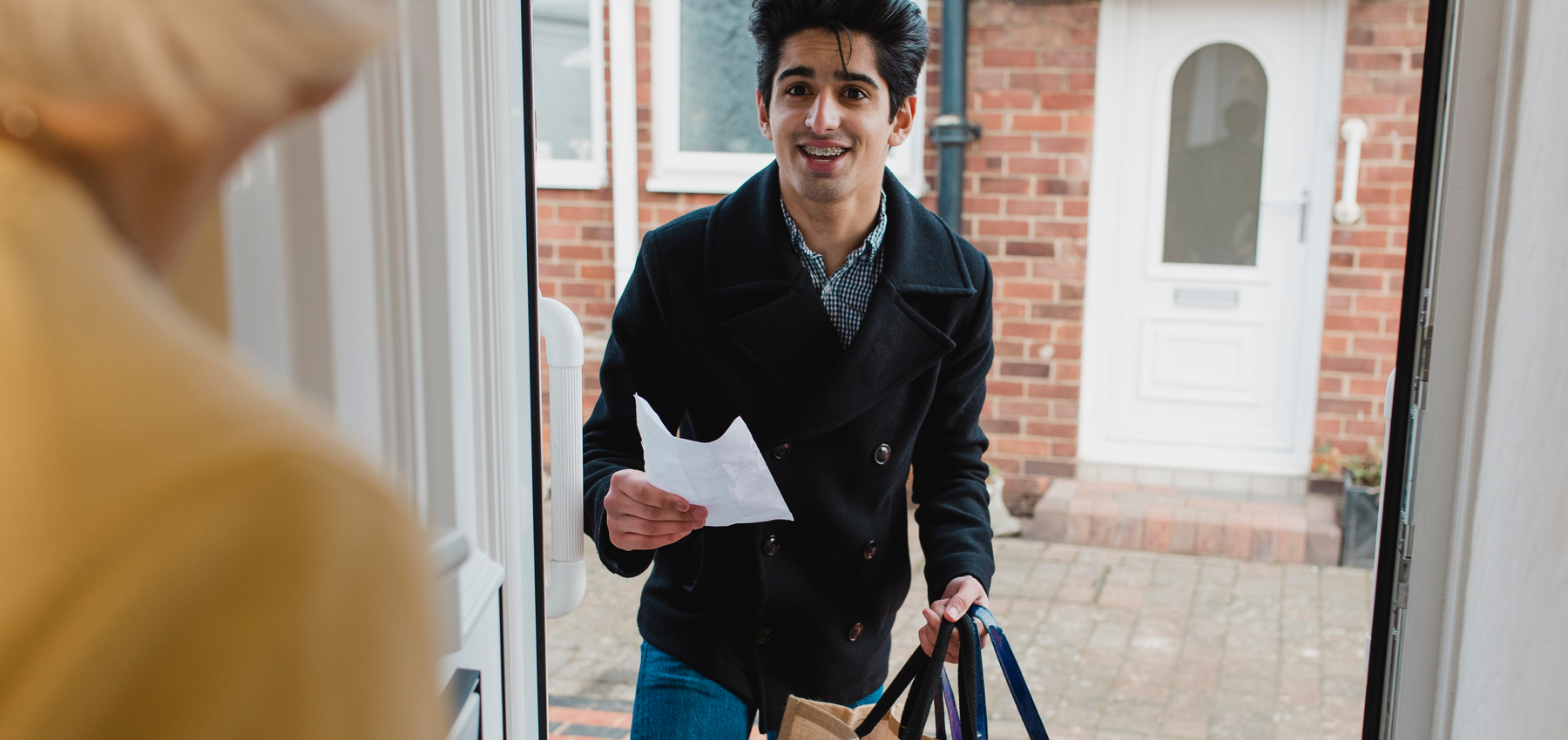The coronavirus (COVID-19) pandemic has compelled us to live our lives according to a ‘new normal,’ which involves social distancing and self-isolation. As individuals and families deal with unemployment, stress, and the risk of being exposed to the virus, it is often the acts of kindness, solidarity and altruism that keeps us together and makes us stronger.
3 ways to volunteer and help the community while staying safe during COVID-19:
1. Virtual check-ins
The government has asked residents to follow measures such as social distancing and self-isolation to contain the spread of the coronavirus. As nations unite in their efforts to fight COVID-19, these protocols have now been implemented in many countries. Social distancing and travel restrictions make it difficult to meet friends and family in-person, but thanks to technology, we can connect with them virtually.
As a newcomer who’s now settled in Canada, in these uncertain times, you may be worried about your loved ones back in your home country. Scheduling regular virtual check-ins with them — through audio or video calls — is a great way to be there for one another and provide moral support.
In Canada, the concept of virtual check-ins is also gathering steam locally. Community members are checking-in with their neighbours and vulnerable populations including, older adults, people with underlying medical conditions such as heart disease, hypertension, and those with compromised immune systems to see how they’re doing and to ensure they have everything they need.
How people are helping
Some non-profits and communities are getting together to form ‘Neighbourhood Pods.’ A Neighbourhood Pod is a group of 5 to 30 people who volunteer to support one another and provide mutual aid, including virtual check-ins.
What you can do to help
- Find a Neighbourhood Pod and volunteer. Progress Toronto has teamed up with Disability Justice Network of Ontario’s Sarah Jama and with Amara Possian, one of the creators of the Neighbourhood Pod Toolkit, to provide an online training (webinar) on neighbourhood pods.
- British Columbia (B.C.) has launched a new 211 phone line and website to help connect seniors with people who want to help them during the novel coronavirus pandemic. You can register online to volunteer. 211, based out of Vancouver, is a charitable organization that specializes in providing information and referrals regarding community, government and social services in the province. It is helping seniors with virtual visits, picking up and delivering some groceries, picking up and delivering medications, and dropping off a meal or two.
- Days and weeks of staying confined to your home can take a toll on mental health. Keep in touch and check-in regularly with friends, family, neighbours and acquaintances in Canada as well as with those back in your home country.
- During your conversations, remind them about best practices for social distancing, isolation and maintaining cleanliness and hygiene at home.
- Organize virtual activities: Read a story to kids over a video call to keep them occupied, play virtual games, or a musical instrument, or sing a song. Choose cheerful and upbeat activities to break the monotony and stress of being in isolation.
- Adhere to social distancing.
2. Running errands
While all of us are actively practicing social distancing, some individuals and community groups have united in an effort to help and assist the vulnerable populations across Canada by running errands to pick up groceries or prescription refills.
How people are helping
Many are joining the local ‘Caremongering’ Facebook groups or volunteering with dedicated COVID-19 community response teams to help those who need assistance. Caremongering is a mutual aid group and is becoming a nationwide trend. The size of the groups ranges from a few handful to thousands and are varied in their core purpose as well. ‘Caremongers’ volunteer to distribute food and supplies to those who need it the most, and run errands for those who are unable to step outside.
What you can do to help
- Join a local Caremongering group or a non-profit and volunteer. Caremongering groups can be found for all major cities across Canada including Toronto, Ottawa, Hamilton, Niagara, Halifax, Winnipeg, Calgary, Vancouver and more. All you need is a Facebook account to read and respond to posts.
- Volunteer with charities, nonprofits and other COVID-19 response teams. For instance, Volunteer Toronto and B.C.’s 211 service are accepting applications online. The Ahmadiyya Muslim Youth Association, the nation’s largest men’s Muslim youth organization, has launched a nationwide initiative to help those in need. Through its Neighbourhood Helper campaign, Muslim youth are offering their services to pick up groceries, fill prescriptions and provide overall moral support. Canadians who require assistance are encouraged to call 1-855-HELP-811 or sign up on their website – Helping Neighbours.
- Practice social distancing and maintain hygiene while making drop-offs: Visit grocery stores and pharmacies at non-peak hours and coordinate drop-offs via text or phone and leave items outside the door. Always wash your hands with soap and hot water for at least 20 seconds before/after each delivery and carry hand sanitizer while you’re out.
- If possible, wear protective gloves while shopping and handling a delivery for someone. Whether or not you choose to wear gloves, wash your hands before and after, and use hand sanitizer as you go.
- Use digital payments instead of cash where possible.
3. Donating
One of the easiest and simplest ways through which you can help those who need it the most in this uncertain time is by donating money or essential items if you can afford to. It’s a challenging time for many individuals and families as organizations have downsized. Many charities, nonprofits and government organizations are working with local governments, the World Health Organization (WHO), and other agencies to support communities and contain the spread of COVID-19.
How people are helping
CanadaHelps.org has a list of charities and local organizations that are raising money in response to the coronavirus situation.
What you can do to help
- Food and medical supplies such as masks, gloves, sanitizers and disinfectant wipes are in high demand in most places. Donate to a charity of your choice or look up local organizations in your neighbourhood that are either trying to raise money or are looking for item donations.
- Don’t panic buy and overstock essential items for yourself as this impacts the vulnerable population and limits them from having access to food and supplies when they need it. The Canadian government has assured that there is enough supply for everyone, so there’s no need to hoard.
- Due to the COVID-19 pandemic many blood donors have cancelled or are unable to make it to their appointments. There is a constant need for blood, stem cells, plasma and organ and tissue donors. Consider donating blood, if you’re eligible, to help prevent shortage.
Support your local community during COVID-19
If you’re healthy and able, there are many ways you can give back to the community in this challenging time. Volunteering has always been symbolic of true Canadian spirit and as you settle in and make Canada your new home; there’s no better time for you to step up and do your part in supporting the community. Together, we can overcome this phase and emerge stronger than ever before!




